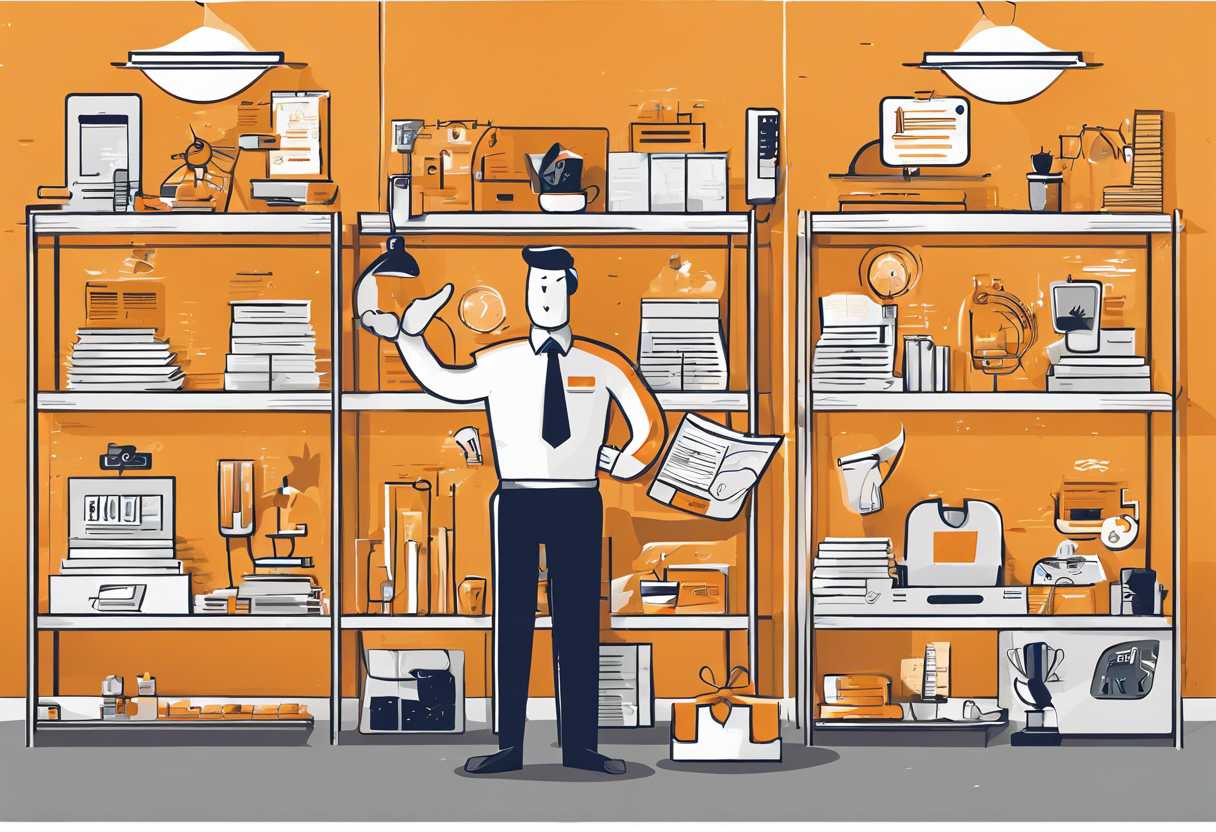In today’s competitive business landscape, the performance of your team plays a crucial role in shaping the overall customer experience. From customer satisfaction to loyalty and the value they bring to your business, the impact of your team’s performance on the customer cannot be overstated. In this blog post, we will delve into the importance of team performance in customer satisfaction, how it can influence customer loyalty, the direct impact on customer experience, and how effective team performance can enhance customer relationships and maximize their value to your business. Join us as we explore the significant role that high-performing teams play in shaping the customer’s journey.
The Importance of Team Performance in Customer Satisfaction
Team Collaboration and Communication
Effective team collaboration and communication are essential for ensuring customer satisfaction. When team members work together seamlessly and communicate openly, they can address customer needs and concerns more efficiently. This can lead to quicker problem resolution and a more positive overall customer experience.
Consistency in Service Delivery
Consistency in service delivery is crucial for maintaining high levels of customer satisfaction. When a team consistently delivers high-quality service, customers are more likely to trust the brand and become loyal. This requires every team member to be aligned with the company’s standards and values, ensuring that each customer interaction meets the same high standards.
Empowered and Engaged Employees
Empowered and engaged employees are more likely to go above and beyond to ensure customer satisfaction. When team members feel valued and empowered to make decisions, they are more motivated to provide exceptional service. This can result in higher customer satisfaction levels and increased customer loyalty.

How Your Team’s Performance Can Influence Customer Loyalty
The Impact of Team Performance on Customer Loyalty
When your team consistently delivers exceptional service, it can significantly impact customer loyalty. Customers are more likely to return to a business where they have had positive interactions with the staff. This means that the performance of your team directly influences the likelihood of repeat business and customer retention.
Building Trust and Relationships
High-performing teams have the ability to build trust and relationships with customers. When customers feel valued and understood, they are more likely to remain loyal to a brand. This is why it’s crucial for your team to prioritize customer satisfaction and go above and beyond to meet their needs. By doing so, they can foster long-term relationships that lead to repeat business and positive word-of-mouth referrals.
Measuring Team Performance and Customer Loyalty
It’s important to measure the impact of your team’s performance on customer loyalty. This can be done through customer satisfaction surveys, feedback forms, and tracking repeat business. By analyzing this data, you can identify areas for improvement and recognize team members who excel in building customer loyalty. Additionally, you can use customer loyalty metrics such as Net Promoter Score (NPS) to gauge the effectiveness of your team’s efforts.

The Direct Impact of Team Performance on Customer Experience
Team Performance and Customer Satisfaction
Team performance plays a crucial role in shaping the overall customer experience. When a team is cohesive, efficient, and motivated, it directly translates into improved customer satisfaction. A well-performing team is better equipped to handle customer inquiries, resolve issues promptly, and provide personalized service, leading to higher levels of customer satisfaction and loyalty.
Communication and Collaboration
Effective communication and collaboration within a team are essential for delivering a seamless customer experience. When team members are able to communicate clearly, share information, and work together cohesively, it results in a more efficient and consistent customer service experience. Customers benefit from a unified and knowledgeable team that can address their needs effectively, leading to a positive impact on their overall experience.
Employee Engagement and Customer Interactions
Employee engagement directly influences the quality of customer interactions. Engaged team members are more likely to go the extra mile to ensure customer satisfaction, demonstrate empathy, and provide personalized solutions. This level of engagement positively impacts the customer experience, leading to higher levels of customer loyalty and advocacy.
Enhancing Customer Relationships Through Effective Team Performance
The Importance of Team Performance in Customer Relationships
Effective team performance plays a crucial role in enhancing customer relationships. When a team works cohesively and efficiently, it can deliver exceptional service and support to customers, leading to increased satisfaction and loyalty. A well-performing team can also effectively address customer needs and concerns, ultimately strengthening the bond between the company and its customers.
Key Strategies for Improving Team Performance
There are several strategies that businesses can implement to enhance team performance and, in turn, improve customer relationships. Regular training and development can help team members acquire new skills and stay updated with industry trends, enabling them to better serve customers. Clear communication and goal-setting are also essential for aligning team members towards a common objective, ensuring that everyone is on the same page and working towards the same goals. Additionally, recognizing and rewarding outstanding team performance can motivate employees to consistently deliver exceptional service to customers.
Measuring the Impact of Team Performance on Customer Relationships
It’s important for businesses to measure and analyze the impact of team performance on customer relationships. This can be done through customer satisfaction surveys, feedback analysis, and customer retention rates. By tracking these metrics, companies can gain valuable insights into how their team’s performance directly influences customer satisfaction and loyalty, allowing them to make informed decisions and improvements.
| Customer Satisfaction Surveys | Feedback Analysis | Customer Retention Rates |
| Measure customer satisfaction levels through surveys to gauge the impact of team performance. | Analyze customer feedback to identify areas where team performance can be enhanced. | Track the percentage of customers who continue to do business with the company over time. |
Maximizing Customer Value Through High-Performing Teams
The Importance of High-Performing Teams
High-performing teams are essential for any organization looking to maximize customer value. These teams are able to work together seamlessly, leveraging each member’s strengths to achieve exceptional results. By fostering a culture of collaboration and excellence, businesses can ensure that their customers receive the highest level of service and satisfaction.
Key Characteristics of High-Performing Teams
High-performing teams exhibit several key characteristics that set them apart from average teams. These include clear communication, shared goals and values, mutual respect, and accountability. By embodying these traits, teams can consistently deliver outstanding performance and value to their customers.
The Impact on Customer Satisfaction
When high-performing teams are in place, the impact on customer satisfaction is significant. Studies have shown that organizations with strong, cohesive teams are able to provide higher-quality products and services, faster response times, and more personalized customer experiences. This ultimately leads to increased customer loyalty and retention, as well as positive word-of-mouth referrals.
Conclusion
As we have explored in this blog post, the performance of your team has a significant impact on the satisfaction, loyalty, and overall experience of your customers. By understanding the importance of team performance in customer satisfaction, you can take proactive steps to enhance customer relationships and maximize their value.
Effective team performance can directly influence customer loyalty, as customers are more likely to return to businesses where they have had positive interactions with knowledgeable and helpful team members. This, in turn, can lead to increased customer retention and long-term success for your business.
Furthermore, the direct impact of team performance on customer experience cannot be understated. Customers are more likely to have a positive experience when they interact with a high-performing team that is dedicated to meeting their needs and providing exceptional service.
By prioritizing effective team performance, you can enhance customer relationships and create a positive brand image that resonates with your target audience. This can ultimately lead to increased customer satisfaction, loyalty, and advocacy for your business.
It is clear that maximizing customer value through high-performing teams is essential for the long-term success of any business. By investing in your team’s performance and providing them with the necessary tools and support, you can create a customer-centric culture that sets your business apart from the competition.
As you reflect on the impact of your team’s performance on your customers, consider how you can further enhance their experience and build lasting relationships. By prioritizing effective team performance, you can create a positive and memorable experience for your customers that keeps them coming back for more.
Take the necessary steps to empower your team and prioritize their performance, and you will undoubtedly see the positive impact on your customers and your business as a whole.
Thank you for reading, and we hope you found this blog post valuable in understanding the crucial role that your team’s performance plays in shaping the customer experience.

